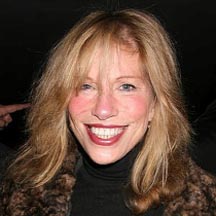LOS ANGELES, (Reuters) – Singer-songwriter Carly Simon, 66, known for 1970s smash hits like “You’re So Vain,” is being honoured this week with the prestigious ASCAP (American Society of Composers, Authors and Publishers) Founders Award.

The award comes four decades after Simon released her first solo record, the self-titled “Carly Simon” with the break-through hit “That’s the Way I’ve Always Heard it Should Be,” followed quickly by her “Anticipation,” album and then “No Secrets” with the single, “You’re So Vain.”
The winner of multiple Grammys and an Oscar for her song “Let the River Run” from the 1988 film “Working Girl,” Simon is the daughter of the late Richard Simon, co-founder of book publisher Simon & Schuster. She also has penned five childrens books and is currently working on an autobiography.
Simon spoke with Reuters by phone from her house in Martha’s Vineyard about her upcoming book, her fear of performing and her battle with breast cancer in 1997-1998.
Q: Did having cancer affect your career, your creativity and writing?
A: “There’s a bigger story about the breast cancer than the cancer. It’s about relationships.”
Q: How did your relationships change?
A: “I wasn’t treated well. I think I was let go of certain jobs and affiliations. It was very confusing but everything was smoothed over because people are smart and don’t want you to be hurt. People were saying it’s got nothing to do with that. It is hard to disregard.
Q: How did you deal with that?
A: “It was like I was the disappearing woman. When I went to the Grammys that year, I noticed how many people avoided me. There were a lot of people who were just not looking at me. It was the first time I was out in public since I’d been diagnosed. The record that I had (just) put out had been dropped and the head of my record label didn’t look at me. It’s like there were masks on. I had disappeared in the audience. Some people were so scared they moved away from me in their hearts and minds.”
Q: What did you work on after that?
A: “Then I went into a wonderful period where I did some work for Disney on the Pooh films. It was about three years of work. They were not big movies, but I got a lot of good feeling in my heart. And then I moved lock, stock and barrel to Martha’s Vineyard … moving to the Vineyard was like coming home to Tara. The land held me in its embrace.”
Q: Do you plan to sing at the ASCAP event? It’s well known that you are stage shy.
A: “My whole life has been very much led by the fact that I have a handicap. I have a bad stammer. When I was a child it was much, much worse. And when you see me talk, it’s worse. I have ticks in my face when I talk. I’m going to sing a song at the ASCAP event. It’s not easier when I sing.”
Q: That’s must be very difficult. How do you deal with it?
A: “There was no specific remedy for it when I was a kid, so I never coped with it. I just had my mom’s lap. I would sit on her lap and cry all the time. I’d be so embarrassed and afraid to go to school. When my nervous system was bad, my mom would just say “Sing it.” I started living an opera beginning when I was 7. I would sing as much as I could or start tapping my hand on my thighs. As long as there was a rhythm, I could get through it.”
Q: You think it would have been easier now?
A: “It’s another thing that people didn’t know that much about. If ‘The King’s Speech’ had come out when I was in high school, then people would have had more understanding about stuttering.”
Q: Sounds like you’ve had some difficult times in spite of all your success.
A: “I’ve had a very glorious and glamorous and wonderful life and a very scary and handicapped existence, which is promoted by fear. It’s made for a very pointy edge on my fear knife. As a result, I could disappear from the scene or be open and talk about it so that people can identify with it.”
Q: What makes you happy these days?
A: “I have a wonderful partner, a man who is a surgeon. He’s a very Type A personality, but I can’t imagine a surgeon not being that way. He’s great. His name is Richard and he’s handsome and he’s brilliant and very dear and loving.”
Q: And how’s your work?
A: “I’m trying to spend the rest of the year getting completed with the book. I’m not sure how I’ll sell it, either as a memoir or an autobiography. I have an agent. It seems like everyone is writing memoirs or everyone in the music business is. Hopefully, by the time mine comes it will have died down. But this is not as (crucial) as the writing of the story.”
Q: Does writing a book feel the same as writing a song?
A: “Yes. It’s like baking. Writing books is like a combination of writing a song and a letter. I love writing songs. It’s my love.”




